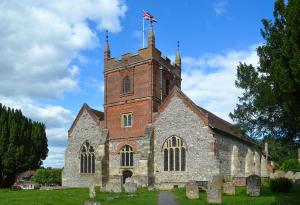 Today I thought it would be interesting to discuss a book that is not in the Protestant canon, though it has long been part of the Apocryphal literature that our Roman Catholic colleagues have used more freely that we Protestants have. This is not to say that even the Roman Catholics have not used this material somewhat sparingly, preferring to employ the 66 books far more than those books that are often placed either between the two familiar testaments (as they appear in my NRSV), or at the end of a Bible as a kind of appendage. Sirach, or as it is sometimes called Ecclesiasticus, its Latin name, is in fact “The Wisdom of Jesus ben Sirach” in its fuller title. We have it only in a Greek version, though it is clear that it was first written in Hebrew in the 2nd century BCE. It comprises a long collection of sayings and poems and represents a thoughtful compendium that remains well worth considering, and so we will do that in today’s reflection.
Today I thought it would be interesting to discuss a book that is not in the Protestant canon, though it has long been part of the Apocryphal literature that our Roman Catholic colleagues have used more freely that we Protestants have. This is not to say that even the Roman Catholics have not used this material somewhat sparingly, preferring to employ the 66 books far more than those books that are often placed either between the two familiar testaments (as they appear in my NRSV), or at the end of a Bible as a kind of appendage. Sirach, or as it is sometimes called Ecclesiasticus, its Latin name, is in fact “The Wisdom of Jesus ben Sirach” in its fuller title. We have it only in a Greek version, though it is clear that it was first written in Hebrew in the 2nd century BCE. It comprises a long collection of sayings and poems and represents a thoughtful compendium that remains well worth considering, and so we will do that in today’s reflection.
The subject of the passage chosen is pride, and obviously Sirach is deeply concerned about the dangers of this human characteristic. In fact, he goes so far as to say, “pride was not created for human beings” (Sir.10:18); the reason he makes that radical claim may be found in the second line of that same verse: “or violent anger for those born of women.” Apparently, the author connects the existence of pride with the actions of violent anger, the first leading to the second. Earlier, he uses the examples of rulers who, puffed with pride, “forsake YHWH,” “withdraw their hearts (that is, their will and intelligence) from God, subsequently “sin” and “pour out abominations” (Sir.10:12-13). Obviously, for Sirach, pride is a very dangerous and destructive trait that simply must be avoided, lest sin in the form of violence and abomination appear among men and women.
I find these connections made between pride and anger very intriguing and somewhat surprising. Surely pride in its healthiest manifestation does not inevitably lead to anger or sin or something so foul as to be named abomination. Honor, self-esteem, or self-respect are in and of themselves no bad things. Sirach is certainly not thinking of pride with those definitions. He has in mind synonyms like “conceit,” “egotism,” “self- importance,” vanity,” “hubris,” “arrogance,” among other negative meanings. From these forms of pride, he avers, arise the dangerous events of sin and anger. I think he is on to something important here, and I wish to get very personal to make the point.
As I began my career as a teacher and preacher in the 1970’s, I was asked again and again to come to churches to offer what I had to give in the way of biblical scholarship and homiletical skills. As I have said in others of my essays, I have been so asked over 1000 times in my now nearly 50 years of this work in perhaps 45 states of the US (North Dakota, where are you?) and in 20 foreign countries. In the first years of this work, especially in the 1980’s and 1990’s, I was gone as much as 40 weekends a year. It was a heady time for me, as I was much in demand, requested to fill prestigious pulpits and named lectureships.
At the same time, my family was young and growing. Over and over, I would leave Diana with our two young children and expect her to carry the full burden of their upbringing while I went out to preach and teach God’s word. I felt called to this work, and just knew I was doing what God had led me to do. Each time I would return from one of these trips, filled to the brim with the rich praises of many of those to whom I had spoken, Diana greeted me with decreasing pleasure, since she had borne the brunt of my absence and the constant demands of our kids. I became nearly an interloper in our family, an intruder who was only anticipating his next trip out of town and the plaudits that such trips always brought. Diana began, first subtly, and then quite overtly, to beg me to cut down my travel, but I argued that we needed the extra money such jaunts made possible. However, as I look back on those days now, I think the praise I was receiving, and the intense pride it created in me, was probably more important than the money I was making. All too soon, Diana and I began to grow apart, and a crisis in our marriage occurred. We separated for nearly a year, and only through God’s grace and some fine therapy and hard work on both of our parts are we now able to celebrate our 50th wedding anniversary in a few weeks’ time.
My pride ballooned on the praises of my listeners. And as a result of that pride, I became increasingly angry that my wife could not praise me as all those strangers did after I had taught them something of what I knew, something of the grace and love of God. I began to wonder why she could not acknowledge my greatness! My pride blinded me to what I had become, namely an arrogant egotist, living primarily for praise and adulation. My anger grew as I simply could not see what was happening, and I became little less than an abomination to my family and ultimately to myself. My pride led to my sin that led to my anger. Sirach was all too correct in his assessment of the vast dangers of pride. Little wonder that he was led to say that pride was not created for human beings. It was for me a devilish characteristic that desperately needed correction.
I remain a prideful person even now, though I have slowed my public events to a trickle since my move to Los Angeles. I believe that I have become less besotted with adulation as I have grown older. My loving wife has been so helpful in this regard, staying with me despite those early prideful years. I also had two other experiences that were extremely helpful to me. The first was a book that someone gave to me: “The Depleted Self,” by the Princeton psychologist Donald Capps. In that book, Capps made it clear to me that all of us feel depleted in our lives and seek ways to fill the holes that depletion brings. Some use drugs or drink, some excessive attention to sports (golf, football, etc.), and some, like me, try to fill the holes with the praise of others. Capps says that each of these attempts do little to fill our holes; they are at best only temporary solutions. Only serious long-term fillers—like trust in God—will truly fill the bill, and the holes.
The second experience occurred when I was asked to fill a prestigious pulpit on an interim basis in my United Methodist Annual Conference. It was by far the largest church in my area, and my bishop asked me over any number of superb candidates. My ego went into overdrive! My first Sunday there it was a wonder that my swelled head could get through the church doors! I had awakened and dressed in the dark that morning, and had driven the 40 miles to the church. As I settled into the ornate pulpit chair at the front of the church, and gazed out languidly at the vast church filled to hear what I had to say, I took a glance at my socks, sticking out from beneath my robe and noted to my horror that they did not match! One was black and one was a loud shade of blue. I quickly pulled my robe down, but I at that same moment imagined that God was speaking to me. My pride was fully engaged, my self-importance was screaming, and my vanity was on full display, but my socks did not match. It was a lesson I needed, and I got it, at least for that day. My pride still appears when I witness someone else asked to do what I know I can do, when I listen to a sermon or a lesson that I know I could give. I try then to take a glance at my socks and remember that pride leads to sin that leads to anger that creates abominations, and I am grateful to God for staying with me despite my willful and arrogant pride.
(Images from Wikimedia Commons)










